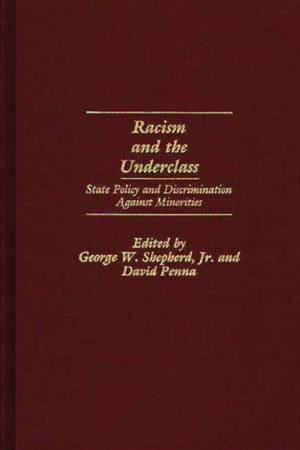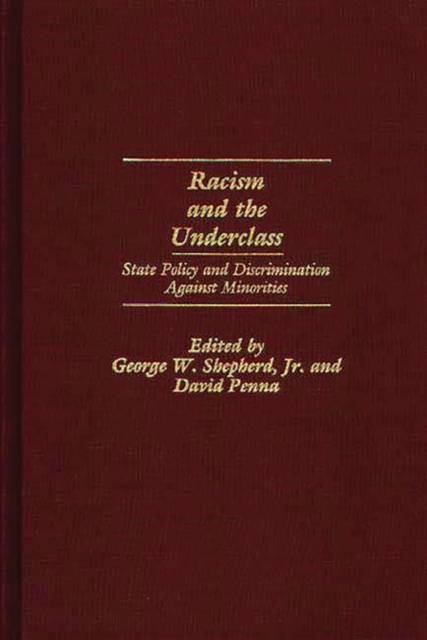
En raison d'une grêve chez bpost, votre commande pourrait être retardée. Vous avez besoin d’un livre rapidement ? Nos magasins vous accueillent à bras ouverts !
- Retrait gratuit dans votre magasin Club
- 7.000.000 titres dans notre catalogue
- Payer en toute sécurité
- Toujours un magasin près de chez vous
En raison de la grêve chez bpost, votre commande pourrait être retardée. Vous avez besoin d’un livre rapidement ? Nos magasins vous accueillent à bras ouverts !
- Retrait gratuit dans votre magasin Club
- 7.000.0000 titres dans notre catalogue
- Payer en toute sécurité
- Toujours un magasin près de chez vous
127,45 €
+ 254 points
Description
This unique collection of essays analyzes the impact of state policies on minority communities in the United States and the perpetuation of an underclass in American society. The editors and contributors begin with the premise that there was a resurgence of racism and disadvantage during the Reagan years, not only in the United States, but also in the world. They contend that a major revision of policy toward the American underclass is urgently needed because of a failure to understand underlying social and economic changes.
Drawing heavily upon diverse sources for data and theoretical perspectives, the studies in this important volume attempt to integrate underclass analysis with policy formulation. The elaboration of the human rights of the underclass under both international and domestic law is presented by Peter Weiss. Gregory Kellam Scott argues forcefully for a shift in the basis of civil rights jurisprudence that would allow the state to assist the underclass by removing past remnants of discrimination. David Penna and Jose Blas Lorenzo discuss the legality and desirability of state attempts to restrict racist speech, given the exploitative nature of the underclass relationship. John Grove and Jiping Wu reassess the perception of Asian-Americans as a model minority and discuss uncertain prospects for the future integration of new Asian immigrants into mainstream America. Debra Kreisberg Voss, Joy Sobrepena, and Peter W. Van Arsdale demonstrate how the immigration process can marginalize immigrants. George E. Tinker and Loring Bush discuss the difficulties in determining Native American unemployment rates and document the underestimation of the problem and its impact on policy toward Native Americans. The politics and hidden agenda of the English Only movement and the policy implications for linguistic minorities are revealed by Priscilla Falcon and Patricia J. Campbell. Finally, George W. Shepherd, Jr. and David Penna present a challenging agenda for state policy toward the underclass for the 1990s. This provocative volume should be read by everyone interested in ethnic and minority studies.Spécifications
Parties prenantes
- Auteur(s) :
- Editeur:
Contenu
- Nombre de pages :
- 192
- Langue:
- Anglais
- Collection :
Caractéristiques
- EAN:
- 9780313278631
- Date de parution :
- 30-08-91
- Format:
- Livre relié
- Format numérique:
- Genaaid
- Dimensions :
- 156 mm x 234 mm
- Poids :
- 449 g

Les avis
Nous publions uniquement les avis qui respectent les conditions requises. Consultez nos conditions pour les avis.






